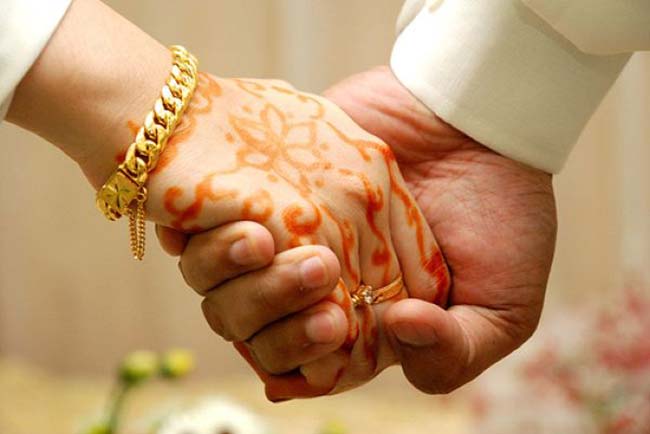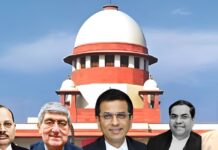The 76-days detention was revealing to the human rights defender Khurram Parvez, who walked out last week from Kot Bhalwal. He shares his indelible impressions and the dichotomy of law in theory and practice with Tabish Rafiq Mir
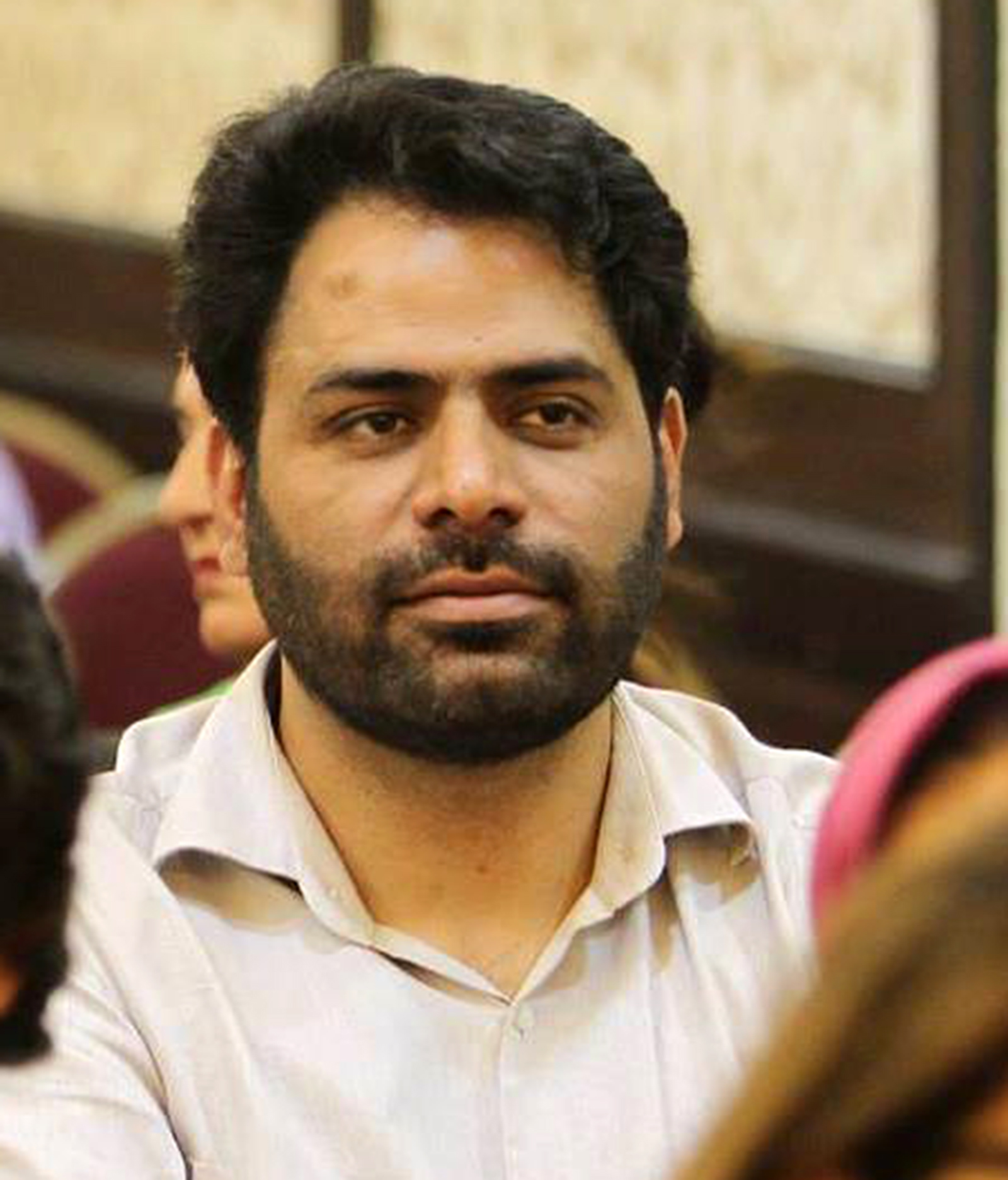
At Delhi’s Indira Gandhi International airport on September 14, 2016, I was slapped with a lookout circular soon after done with immigration. I was to board Geneva flight at 3:30 am to attend the United Nations Human Rights Council Session. I was asked to leave.
Next evening, in Srinagar, a few cops from Ram Munshi Bagh Police Station came looking for me. I wasn’t home. I called Sheikh Faisal, SP concerned, who told me to come over at 10 pm, the next day. But later that night, cops showed up, saying, ‘SP wants to see you.’ I drove in my own car. I was subsequently locked up. It was a trap and I was angry. Next evening, they took me for a “medical test” to the PCR. The “tests” meant writing on a piece of paper that I was alright, and that my heart and blood pressure were normal.
I told the lady doctor that if they were detaining me, then she must write about my leg and my need for an English Commode.
“How can I?” she exclaimed. “I am not an orthopaedic and we don’t have one here right now.” Then, she started asking police what they want her to write.
The “medical report”, written without any tests, was a rough piece of paper mentioning that I was an amputee. Mocking the system, a DSP at one point told us: “paperwork to 100 percent rahega”.
After the ‘check-up’, I was taken to DC office “to meet the Tehsildar”. He wasn’t there, they said. Twenty minutes later, Police availed Executive Magistrate’s order to detain me. I was denied an opportunity to defend myself, my basic right. Even my lawyer, Shrimoyee Nandini Ghosh, was denied the FIR number. Subsequently, on Sep 16, I was taken to Kupwara in the middle of the night, without allowing me to seek any judicial remedy.
Kupwara jail has around five barracks. Inmates talk in garden, read newspapers, watch TV, and talk about the unrest.
Jamaat-e-Islami’s Mohammad Yusuf Sheikh, a very old man, whose son Altaf was killed in Sopore two years ago, was there. Hurriyat leader Wali Mohammed Shah, 80, Mohammed Yusuf Lone, Tehreek-e-Hurriyat’s Kupwara president, was also there since April, booked under PSA. Some 17 young boys from Pattan who were booked under PSA were also there without the knowledge of their parents. Frustrated, I usually found them crying. I, along with other seniors, would spend hours consoling them.
There were a few minors, too. One minor from Lolab was very depressed, always crying. He was later slapped with PSA and sent to Kot Bhalwal. When he finally saw me in Kot Bhalwal, he jumped with excitement, blurting, “Aapke hone se ye apna ghar lagta hai”. Seniors at Kot Bhalwal used to take special classes, organise group prayers, and arrange volleyball and football games for depressed youngsters.
Once, I asked the boys about their “crimes”. Kani Jung (stone pelting), they all said.
I was surprised when someone said “Zani jung”!
“I had an affair with a girl. Her dad lodged a case of rape against me. I had married her,” he said.
There were two boys convicted for rape, a small kid from an army school in Lolab and an army worker. They helped me a lot. “Do you know me?” one of them told me one day. “You are the reason I am in prison.”
In July, 2016, they were arrested for rape. At JKCCS we got information about this, following which Manzoor and Jaffar, were arrested.
The man used to lead prayers was accused of murdering his wife. He is in jail for last six years without bail. Bail is a right of a person convicted of a crime, unless his bail harms the people who originally filed the case against him/her.
“The judge doesn’t even listen,” a young man, accused of domestic abuse and abetment of suicide, would often tell me: “I was away working in Srinagar when she committed suicide. There is enough evidence to acquit me but nobody listens. I will never marry anyone even if I am released. Pelting stones is better. Even with a false accusation and a PSA, you last for six months. But for domestic abuse, you never leave prison. Kani Jung is better than Zani Jung.”
A Burmese Muslim woman married to a Pakistani was caught trying cross the border. Pregnant, she delivered her child in jail. In jail for four years, she was not allowed the international refugee status. Similarly, in Noor Mohammad Talwal’s case, the PSA plays the same card. It mentions a kidnapping case against him which has already been closed.
On September 20 evening when I was released, a car from Kupwara police station was waiting for me. They had no warrants. While I was in Kupwara, my counsel got the executive magistrate’s order. The judgement terming my detention illegal asked for my release. Despite protest, I was taken to the Kupwara police station.
There, police failed to produce any legal document. “There is a group of police officials coming from Srinagar. They must be having something,” one officer finally said.
This absence of accountability and respect for the law infuriated me and I asked for an officer. A DSP arrived, telling me: “I know this is wrong but I will be suspended if I let you go.”
“Am I under arrest?” I asked him. He said nothing. I started walking towards the gate. The sentry rushed to the latch and locked it. This was their mode of communication.
Around midnight, amid all this argument, a police party arrived from Srinagar. After failing to provide an arrest warrant against me, they forcibly took me along.
We left at around 1.45 am in a police car. Shrimoyee, my lawyer, insisted she would come with me, in case there was some mischief, while my wife and my brother followed us in a car. Army was everywhere. In Sopore, a long line of apple laden trucks weren’t being allowed to move by the army. Throughout the journey, I could smell teargas and burnt tyres.
At Kothibagh, I could understand why they barred me from flying to Geneva. I was being accused of vague conspiracies, blamed for my Facebook posts, and of instigating Hurriyat to not meet Rajnath Singh. For the record, I can prove how factually wrong all of these accusations were.
Again, I was taken for “medical test”. A sub inspector named Bashir started a fight with me. He disallowed proper medical procedures to be taken. “No matter what you do, nobody is going to save you,” he would tell implying that I was using my amputee status to get exempted from detention.
At police station, I asked for the PSA dossier. They flatly denied that. Around 9 pm, I was verbally told that I was going to be taken to the Kot Bhalwal.
On September 18, DC was approached by my wife, about the order against me by executive magistrate, under 107. He marked it and forwarded it to the additional DC. My case was to be brought to the DC. If the DC, on the 18th, had known that I was detained illegally, then why did he sign the PSA later?
Late night, on September 21, I was driven to Kot Bhalwal in a minibus with no windows or seats. I refused to go in that vehicle. I would have probably been forced inside if the cops, in whose custody I was, had not refused to go in that vehicle too.
After a lot of argument, a bus arrived from the Nowhatta PS, with two detainees Naseer Ahmed Malik, an old man, a depression patient, accused of mere protest, and Aadil Rasheed. Both were booked under PSA.
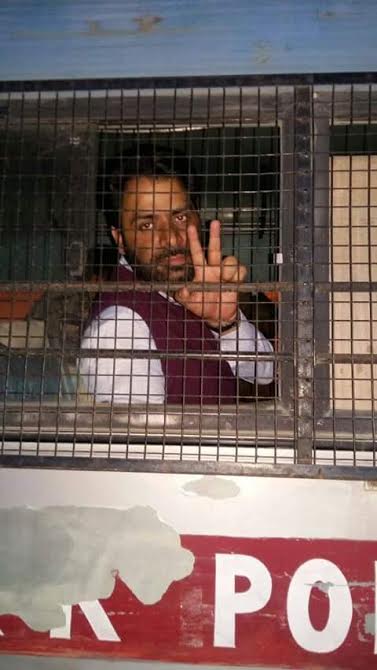
This bus was also windowless, but there was place to sit. I boarded the bus. It was freezing, metal biting cold. Luckily, my family had brought a blanket for me, knowing that I hadn’t slept in days. As I sat down, I started removing my prosthetic leg.
This was the first time I saw the men behind the uniform. As I was removing the prosthetic leg, I could see that some of them were crying. I was moved.
With 17 cops, we reached Kot Bhalwal around noon. They would not accept my “medical documents”. I could tell that the law was more accountable in this part of the world.
I was taken to Jammu police hospital, where I was taken to Dr Shehla. Cops were telling her to write anything on a piece of paper, without proper examination or tests. “Unless you want to be a part of a very long legal procedure later, you will conduct my medical tests as mandated by law, and as is my right,” I told her.
She got out of her chair and all the tests were done.
As I was moving through the hospital corridor, everyone was surprised that I was arrested. “How can you be arrested for stone pelting?”
It is a popular opinion in Jammu, as well as in other parts of India, that every prisoner from Kashmir is a stone pelter.
Later, I was taken to Government hospital in Gandhi Nagar for consulting an orthopaedic. The first thing he told me was that disability was no bar for detention. I reminded him that his job was to write about my condition and prescribe the environment (an English commode) needed for me.
At the gate, they saw that I was not handcuffed and called for someone to handcuff me. They were very disrespectful, and aggressive. I told him that I hadn’t worn them in Srinagar and I won’t wear them in Jammu. “Ye chudiyan nahin pehnunga mai,” I told them.
The jailor said that “these things work in Kashmir, not here”. I asked him if he was trying to tell me that different laws apply in two parts of the same state just because he wished so.
Inside the compound, an old man, around 75, was caught in the act of trying to sit on a chair and was yelled at and asked to remain standing.
Inside, they started the whole process of humiliating checking. I had one suitcase (as opposed to the government’s claim that I had three suitcases filled with foreign clothes), my prosthetic leg and a crutch.
Everything in my suitcase was opened and disturbed out of order. They even checked the drawstrings, and took out the papers. My crutches were disassembled, and opened to the bare minimum. When he took my prosthetic leg, which I was asked to remove for checking, he told me that he would have to remove the foam inside and check. I asked him why he couldn’t X-ray it. It was a leg worth 9 lacs. He said that the machine wasn’t working.
As he was about done, he was audacious enough to ask me why I indulged in stone pelting. I got angry. I reminded him that his job was to check my shoes and clothes, and not question why I was there.
As I was leaning on my crutch, a guard asked me to sit down on a chair. I told him I won’t sit unless they give the old man a place to sit as well. They told me he doesn’t need to. Anyway, I made him to sit on the chair. This old man was Shafi Khan.
This checking point is the same place where the stone pelters brought from Kashmir are stripped naked for cavity checking, with light shone in their rectums while stretching their legs wide open. Later I talked to SP about this sexual humiliation.
“If you bring a stone pelter into custody, why do you want to turn him into a militant?” I asked.
This was the first time that I was shown a copy of my dossier. It contained vague details of my conviction, and my “crimes”. I read about an international conspiracy in collaboration with Pakistan, to defame India.
The dossier said I instigated Hurriyat. The government also believes Kashmir is leaderless. But how do you accuse Hurriyat if they are leaderless, and how then am I accused?
Then the PSA claimed that I had started an organisation called the Human Resources in 2004, which I never did. I was associated with JKCC from day one, which was June 20, 2000.
My name is Khurram Parvez, son of Sheikh Parvez Ahmed.
But the executive magistrate’s remand named me Khurram Manzoor, s/o Manzoor Ahmed. The same name bears on my FIR copies. Similarly, I was shown 34-year-old. This showed their familiarity about me and yet they termed me “incorrigible” meaning “untreatable” in government lingo.
At Kot Bhalwal, the day starts rather early for the Kashmiri Muslims. They wake up at 3 am to beat the hour long queues outside the bathrooms which are four in number for a surprising barrack population of eighty. The lockups open at the crack of dawn to facilitate our prayers and mandatory headcount. Around 6 am, we Kashmiri Muslims would come out into the garden and have a fresh start to the day. “I am sure that I will have no problem even if the Kashmiris are higher in number in my jail,” the jail superintendent told me once. “They are disciplined people.”
Each prison block has two buildings and each building four barracks, counting to eight barracks in total. Our block had two barracks. Two of these barracks in one building were occupied by Kashmiri Muslims, while the other two were purely Hindu populace. Each barrack had four rooms. The prison compound, however, was common. The nominal capacity of each block is 40. However, the prison was cramped up because this number was pushed to around 80.
Once, the Hindus, habituated waking up later in the day, were agitated in the morning. They stormed out in considerable numbers and started beating the Muslim inmates without warning. Jail authorities intervened. Ironically, Kashmiri boys were taken into solitary confinement, where doors open just once for two hours a day. On persistent negotiation and protests, they were transferred to other barracks.
I lived in block 3. In our block, 2 barracks were for “us” – the people from Tehreek-e-Hurriyat, and myself. I was given a Dunlop for sleeping but the prison cells were infested with ants, cockroaches, and scorpions. Later after protests, this problem was looked after by the authorities (fumigation) and the weather.
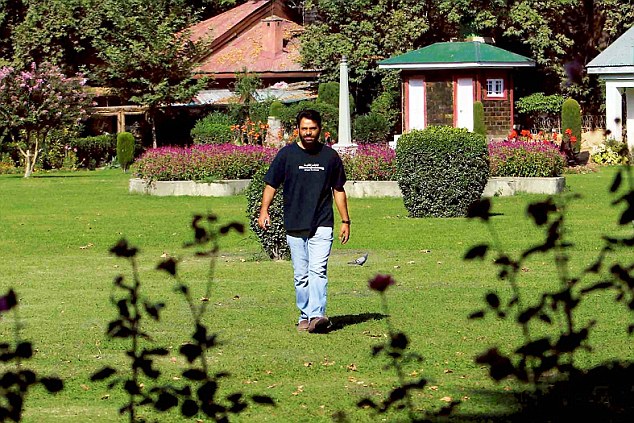
The segregation, I learnt later, was done intentionally to avoid grouping us with the young protesters to avoid dialogue.
The food in the jail lacks basic nutrition. Once, as I was sleeping, my blood pressure dropped and I panicked as my arms turned numb. I lost sensation. I immediately asked to be taken to the hospital. I was given multi-vitamins which were very expensive. The doctor told me that the problem is that the food in the prisons lacks basic nutrition and is not enough for healthy sustenance.
The irony is that they provide us very expensive medicine for free, but they fail to provide good food. This is because “multi-vitamins” have a greater advertising appeal.
Surprisingly, the prison doctor had not complained to the government. He preferred silence at the cost of prison population.
On the other side of the block, there were two soldiers who were among the forty convicted by court marshal for inciting and participating in a mutiny against the officers, in Leh, in 2013. They were apparently reacting to a molestation. In solitary confinement for one year, their health worsened.
Most of these accused were sent to their respective districts. One of the remaining two was recently sent to Tihar. The allegation of molestation was apparently false.
Satinder Singh from Banaras is one of them. One day, his BP levels elevated as he felt a burning sensation in throat. He was driven to hospital where he was diagnosed with symptoms of cancer. The entire block was sullen that day. Later, I grew very close to him. He alleged that one of his colleagues was accused of molesting an officer’s wife, beaten to pulp, and thrown out into the snow, to be frozen to death. This triggered protests especially when officers refused to take the wounded man to a hospital.
Half of the Kot Bhalwal is comprised of Tehreek-e-Hurriyat. There were two fathers, jailed along with their sons. Saderkot’s Ghulam Nabi Dar is 78-year-old man, with his son Zahoor Ahmed Dar. Raees Ahmed Mir was a minor. The court had asked for him to be transferred to juvenile detention. While fighting this, his father Basheer was also sent to Kot Bhalwal merely because he questioned the way the court order was violated.
Two brothers, Bashir Ahmed and Farooq Ahmed Soulih, running Pakeeza Hotel in Baramulla were also there.
Many people I talked to mentioned that they were not involved in stone pelting. Their PSA mentioned that they had instigated it.
Ghulam Mohammad Hubbi, the Hurriyat leader from Chrar Sharif consistently asked the people not to pelt stones, or support Lashkar-e-Toiba. His struggle for the rights of the prisoners in the jail was exemplary. He fought for the prisoners to be kept out of solitary confinement, and also for banning their cavity checking.
A surprising grievance of many prisoners was that they weren’t framed right. To them, it was a sign of disrespect and insult that they were being framed for something they had not done.
Ghulam Nabi Zaki, 70, Awami Action Committee’s General Secretary was taken from Sopore and kept in the Sopore P.S for 20-25 days. From here, he was then taken to another place because he was told that there wasn’t enough space for him there. He was then taken directly to Kot Bhalwal where he was told that there was a PSA against him, for which he wasn’t even given the dossier. He wasn’t even allowed to meet his family.
The advisory board is very rarely called, and almost never is a judgement passed to acquit the accused. This is a statistical abnormality. A political prisoner is not a convict. But the people detained under PSA were made to do menial labour, against their will.
I talked to around 250 people. Almost none of them had been taken to the Tehsildar, or the DC. The PSA on almost all of them was passed while they were in detention. How was the PSA passed if they were detained already?
High Court set me free on November 29. However, I was handed over to the JIC, an outright contempt of court. I was taken to the JIC, Meeran Sahib in a van, and I spent the night there.
Next morning, SSP CID, and a DSP told me that they had information to release me there.
The night I spent at the JIC, I saw its staff having no place to sleep, or any bedding to comfort them after long hours of work. Despite all that, they treated me well. They gave me their own blanket. They took good care of me.


